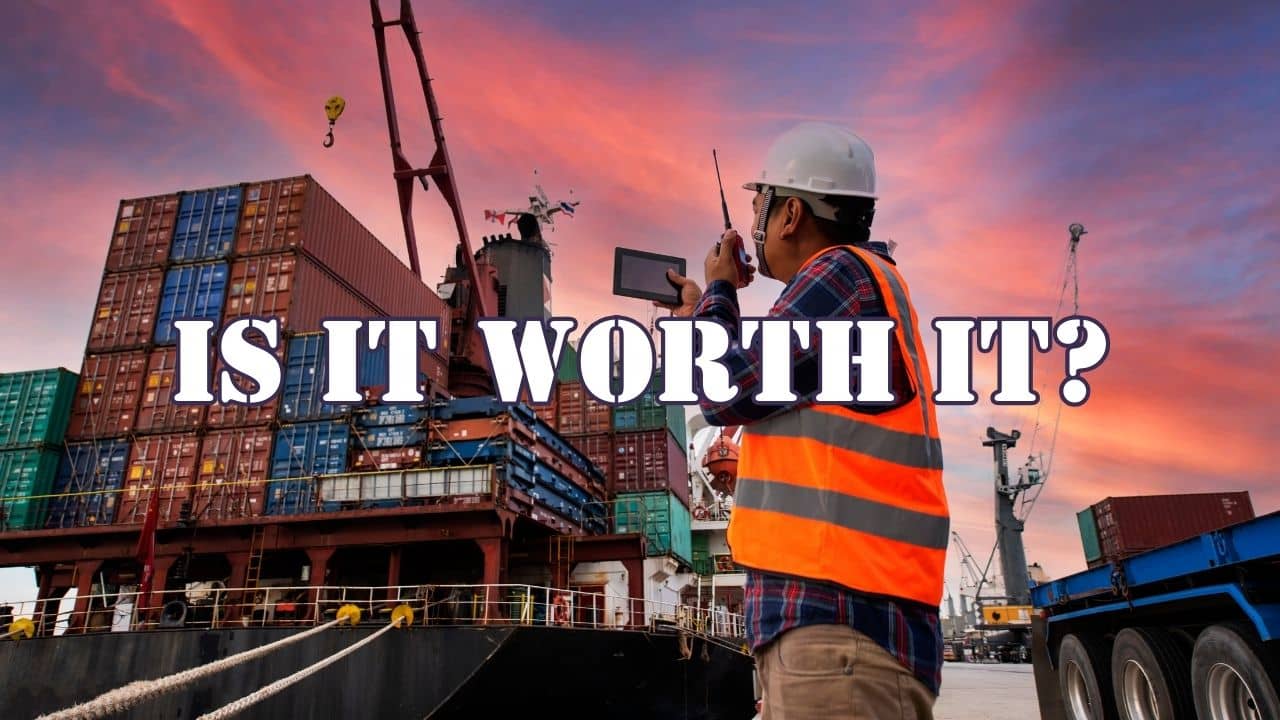
Is It Worth Having Marine Cargo Insurance?
3-minute read
In the world of maritime commerce, unexpected events like the recent Baltimore bridge collapse involving the Dali box ship can have profound implications for cargo owners.
As the fallout from such an incident unfolds, it’s essential for cargo owners to understand a fundamental principle of maritime law known as the General Average (GA) and the importance of having adequate insurance coverage.
What is the General Average, and why should you care?
GA is a centuries-old maritime principle that mandates all parties involved in a sea voyage to share the losses incurred due to sacrifices made to save the voyage from peril.
In simpler terms, if part of the cargo is thrown overboard to prevent the entire vessel from sinking or to mitigate risks, the costs of such actions are shared among all cargo owners, shipowners, and other involved parties.
According to CNN Business, the recent catastrophic collision involving a cargo ship that obliterated Baltimore’s Francis Scott Key Bridge is anticipated to result in billions of dollars in damages.
However, understanding the complex web of liabilities will require a deep dive into maritime law, one of the oldest legal domains that traces its roots back thousands of years.
Sean Pribyl, a partner at the law firm Holland & Knight, emphasized the ancient origins of maritime law, dating back to civilizations like the Phoenicians and Greeks.
He explained to CNN Business that maritime law originated around 3,000 years ago when lawmakers on the island of Rhodes faced a problem.
During risky voyages, crews sometimes had to throw valuable cargo overboard to save the ship. However, deciding whose cargo to sacrifice led to disputes.
To solve this, ancient lawmakers created a rule called general average. It means that if any cargo is lost to save the ship, the costs are shared equally among all the cargo owners. Pribyl added that these days, it can also extend to costs related to repairs and other expenses.
In the case of the Dali incident, while the vessel’s salvage operations are still ongoing, vessel 0wners have declared General Average, according to a customer advisory from MSC, which stated that
“this decision indicates that the Owners expect the salvage operations to result in high extraordinary costs for which they expect contribution from all salvaged parties under General Average”.
Following the advisory, shipping analyst Lars Jensen, in a LinkedIn post, expressed his hope that shippers with cargo aboard the Dali have adequate insurance coverage. Otherwise, they may face responsibility for their portion of what is anticipated to be a substantial salvage bill.
This shows that even today, ancient maritime laws like the GA still play a vital role in determining who bears the financial burden in maritime accidents.
Why is having insurance crucial for cargo owners?
Understanding the complexities of GA and its financial implications can be daunting, especially considering that the process of assessing cargo values and determining each party’s contribution can take years.
Despite several high-profile cases in recent years, the General Average remains rare in shipping and something many cargo owners aren’t aware of or consider insuring against.
While there might be some coverage by a freight forwarder or carrier under their standard trading conditions, these are typically limited, as opposed to the actual value of the goods. As such, many cargo owners might find themselves uninsured or underinsured, facing unexpected financial burdens.
Having comprehensive marine cargo insurance is your best defence against such uncertainties.
A robust insurance policy tailored to your specific needs can provide coverage for potential GA expenses, ensuring that you’re protected against unforeseen losses arising from maritime incidents.
In conclusion, as a marine cargo owner, it’s essential to educate yourself about the General Average and the role it plays in maritime commerce so you can protect your business from the financial repercussions of unforeseen events.
Stay informed, stay prepared, and sail confidently into the future.
P.S. Easy Freight Ltd helps New Zealand importers & exporters to save money on international freight and reduce mistakes by guiding how to comply with Customs and biosecurity rules.
➔ Contact us now to learn how we can assist you.
